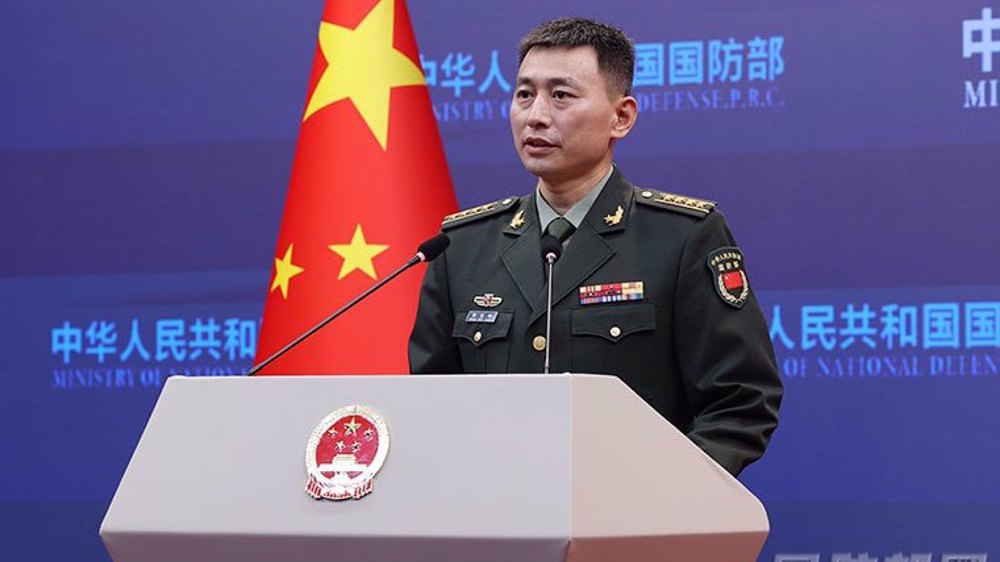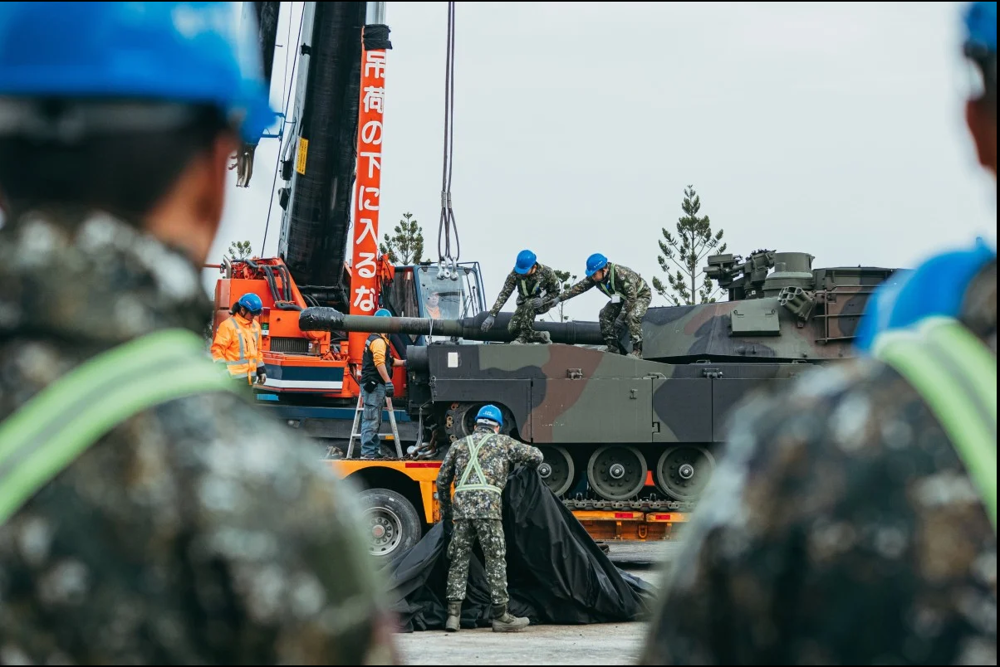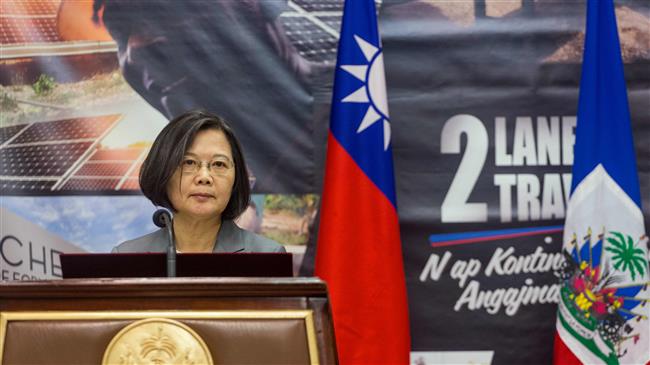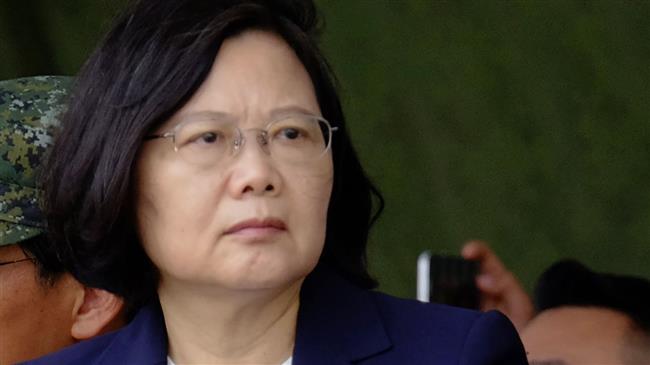Taiwan scaremongering with talk of possible attack: China
China has accused Taiwan of scaremongering after the self-ruled island warned of a possible Chinese attack, saying Beijing could resort to military conflict to divert domestic pressure if an economic slowdown bites.
Last week, Taiwan Foreign Minister Joseph Wu said China could attack the self-ruled island if any threat to the ruling Communist Party arose from any slowdown in the world’s second largest economy amid a trade war with the US.
Ma Xiaoguang, spokesperson for the Taiwan Affairs Office of China's State Council, told a regular news conference in Beijing on Wednesday that Wu’s comments were “complete nonsense and absolute rubbish.”
“Recently, in order to seek benefit for the elections, they have been weaving various lies to intimidate, threaten and mislead the people of Taiwan,” he added.
Ma said "compatriots on both sides of the Taiwan Strait must be highly vigilant and not easily misled.”
“Under the current complicated economic situation, the mainland’s economic development landscape is still good, and this is not something the likes of Joseph Wu can talk down,” he said.
Taiwan faces presidential elections in January. China considers the island as a wayward province under the globally-recognized “One China” policy.
The policy refers to the diplomatic acknowledgement that there is only one state called China, despite the existence of two governments; one in China and another on the island of Taiwan.
In January, Chinese President Xi Jinping said in a speech that Beijing reserves the right to use force to bring Taiwan under its control but will strive for peaceful "reunification."
Ties with Beijing have soured since Taiwan President Tsai Ing-wen came to power in 2016. Her party refuses to recognize the idea that Taiwan is part of "One China".
China has pursued reunification with Taiwan ever since the island broke away from the mainland during a civil war in 1949. It claims full sovereignty over the island and almost all world countries, including the US, recognize that sovereignty.
Under President Donald Trump, the US has however increasingly embraced Taiwan. Since Trump took office in January 2017, Washington has opened a new de facto embassy in Taipei and passed a law to encourage senior US officials to travel to Taiwan to meet their counterparts.
China has warned Washington against meddling in Taiwan, saying it will “resolutely take action” and "fight at all costs" to defend its sovereignty over the self-ruled island as well as South China Sea waters.
Besides Taiwan, Washington has infuriated Beijing on numerous occasions by siding with China’s rivals in the long-running territorial dispute over the energy-rich South China Sea.
The tensions between Washington and Beijing over Taiwan come as the two are already involved in a bitter trade dispute.
The US is also accused of meddling in Hong Kong, which has recently been the scene of violent protests over an amendment to the city’s law, which would have allowed extradition to mainland China.
Hong Kong, a former British colony, was returned to China in 1997, under a "one country, two systems" deal that guarantees it a level of autonomy, including a separate and independent legal system.
VIDEO | Yemenis praise the military for its successful operations against Israel
VIDEO | Iran’s Leader receives eulogists on Hazrat Fatima birth anniv.
VIDEO | Israel continues to bomb Gaza homes
VIDEO | An insider's view of the country: Meybod City in Yazd
‘All wars have rules. All of those rules have been broken’ by Israel
VIDEO | Report flags India’s violation of rights of Rohingya detainees
Turkey's foreign minister meets Syria's de facto leader in Damascus
VIDEO | US Syria plots
















 This makes it easy to access the Press TV website
This makes it easy to access the Press TV website